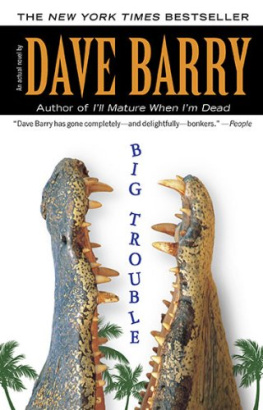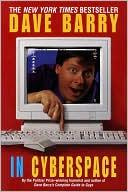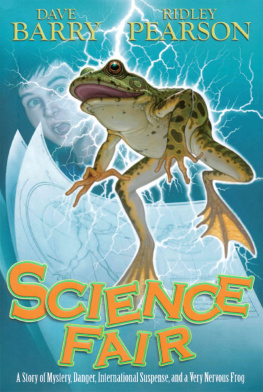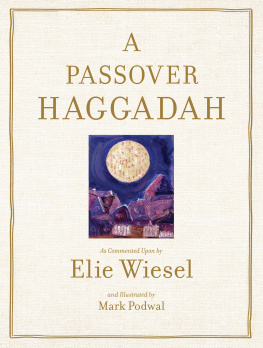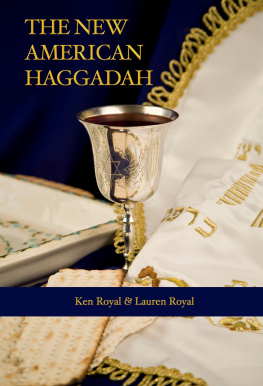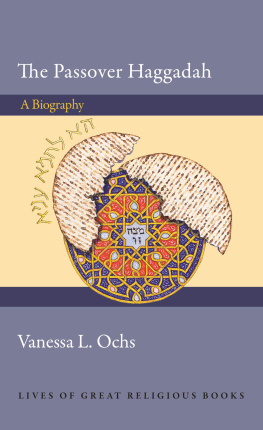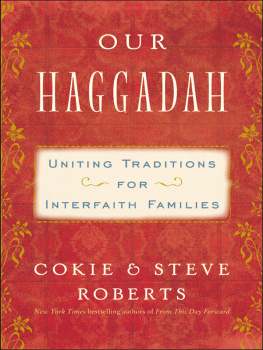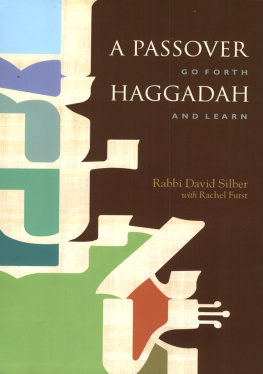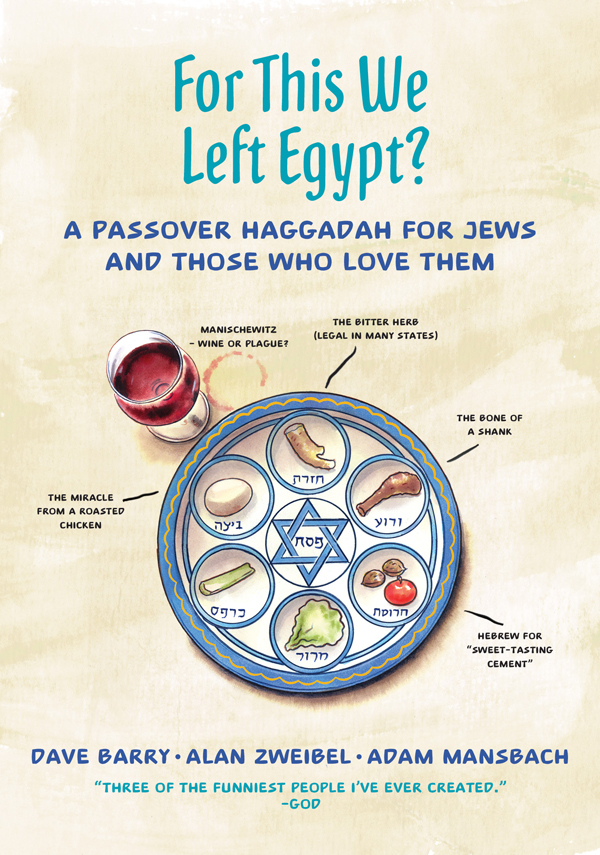Contents
Guide

The author and publisher have provided this e-book to you for your personal use only. You may not make this e-book publicly available in any way. Copyright infringement is against the law. If you believe the copy of this e-book you are reading infringes on the authors copyright, please notify the publisher at: us.macmillanusa.com/piracy.
This book is dedicated to the Jewish people,
who have a great sense of humor,
we hope.

WHAT IS THE HAGGADAH?
By Rabbi Schmooley Weiskopf
The book you hold before you contains the liturgy for the Seder service on this festival of Passoveror, as reform Jews sometimes call it, Chanukah. It tells the story of our peoples slavery in Egypt, their release from bondage, and their mass exodus to the Promised Land. It is a much-beloved book, steeped in tradition and replete with prayers and songs of celebration in addition to fun pictures of inedible food and deadly plagues.
Yet what has confounded rabbis and been a source of much theological debate through the centuries is the word Haggadah itself. What does it mean?
Some have contended that it does not have a definition, that the word itself defines the textjust as the word kneecap has no other meaning than, well, kneecap.
In fact, Haggadah is not a word, but rather the name of the only former Hebrew slave to drown once the waters of the parted Red Sea unparted. Haggadah crossed safely, but went back to retrieve a sandal that had come off his foot during that hectic rush between the walls of water. As a handful of witnesses overheard and subsequently blabbered to their Old Testament neighbors, the conversation between Haggadah and Moses once they reached the other side was as follows:
Hey, Moses, do me a favor and keep the Red Sea parted just a few minutes longer? I gotta get my sandal.
To hell with your sandal, Haggadah! Ive got to unpart these waters so the Pharaohs army drowns. My G-d, its been hundreds of years since we relaxed.
So what am I supposed to do?
Hop to the Promised Land, Haggadah.
But the portly Haggadah did not pay heed. He waddled back for his beloved sandal (its been said the pair were a gift from his aged mother shortly before she died of dysentery, leprosy, intestinal worms, plague, scurvy, and exposure), retrieved it, placed it on his foot, turned, and started running in an attempt to rejoin his now liberated brethren. But it was not to be, as the walls of the Red Sea came crashing down upon himthe irony being that about ten minutes later his retrieved sandal washed ashore, where it was reshaped by Moses into a hand puppet to amuse his grandchildren.
And for these reasons, this Haggadah is dedicated to Haggadah.
Happy Passover,
Rabbi Schmooley Weiskopf
P.S.: Then again, I could be wrong. In which case this book is dedicated to my high school track coach, Jim Hart.

Over the years, countless parents have asked us this question: Where can I get a good family Haggadah? Really, its weird how often this happens to us. Well be sitting in a public-restroom stall, and suddenly a head will poke under the door, and its almost always somebody asking where to get a good family Haggadah. Sometimes these people arent even Jewish. Sometimes they arent even parents. Thats how huge the demand is.
And with good reason. Many young Jewish people today would rather undergo amateur eyeball surgery than sit through a lengthy and boring Seder. With that in mind, we wanted to make this the most entertaining and fun Haggadah ever. We thought about putting Sudoku puzzles in it, or a helicopter-chase scene involving the Pharaoh. We even considered doing the Haggadah in the form of an app, so that younger people could go through the entire Seder without ever looking up from their phones. Thats how serious we are about engaging young people.
In the end we went with a more traditional print format. In these pages, youll find the Seder service accompanied by some Hebrew writing. We frankly dont know what this writing says; for all we know its a Hebrew repair manual for a 1973 Westinghouse dishwasher. We just felt that there should be some Hebrew in here.
Youll also find discussion questions and activities sprinkled throughout the book. These will make the Seder last longer, so you should ignore them. We also strongly recommend that you appoint somebody as the Seder leader, with the authority to assign reading passages and assess fines for mispronunciations, slow reading, asking too many questions, etc. The Seder leader should have a whistle approved by the Rabbinical Council of America.
However you tell the story, the important thing is that, as a family, you are carrying on the ancient Jewish tradition of sitting around a table and carrying on a tradition, followed by a soup course. It is up to you, as a Jewish person, to keep this tradition alive by passing it on to your children, so that someday they, too, will purchase this Haggadah, and our children will receive royalties.
We will close with these Hebrew words:



To put it bluntly, you are loathed at the Seder table. Yes, during the other 364 days of the year you are cherished, respected, and tolerated for smelling more like a cedar closet than you once did. You represent happy childhoods to your children, give gifts and tell great stories to their children, and are forgiven for having teeth the same color as Dijon mustard.
But then, in the time it takes to say, After forty years in the desert, Mosess breath could melt a pyramid, all that unbridled affection unravels because of your insistence that we read every single Hebrew word of an already-long service that stands in the way of partaking in the festive meal. The irony being that these prolonged prayers cannot even be heard above the growling stomachs of the people seated at the table. Hungry adults who have worked all day and battled traffic on their commutes home. Hungry children whove spent the entire day at school and are looking forward to singing Dayenu and then stuffing their faces before pillaging the house in search of the afikomen with their cousins. Even hungry pets are eager to forgo the ho-hum blandness of store-bought food in favor of a delicacy like a discarded shank bone.
Is it any wonder that, according to polls conducted by the Federation of Rabbinical Theologians (FART), the Most Despised People in the Jewish Community List looks like this?
Adolf Hitler
Osama bin Laden
Grandparents at Seders
ISIS
Exactly what should be done to stem the mounting tide of disdain and preserve the legacy of this greatest generation? The Federation of Rabbinical Theologians, in conjunction with the recently formed League of United Divine Learned Youth (FARTLOUDLY), maintains that the ball is in the grandparents court. Your choices are threefold: you can keep your mouths shut and adhere to the wishes of offspring whose turn it is to run their own Seders as they see fit; you can not show up to the Seders until after the meal, when the door is opened and you are dressed as Elijah, which will provide a good laugh for adoring grandchildren, especially if you give them money after their laughs subside; or you can convert to a religion that doesnt eat. The choice is yours.


